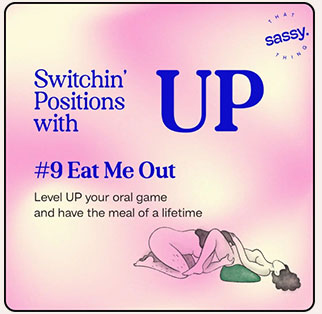Your cart is currently empty

A Conversation with Dr. Itisha Nagar
Trigger warning: As this piece discusses slut shaming, there are mentions of gender based violence, body image issues, and fatphobia.
The way norms are enforced in school, you’d think that a highschool student wearing eyeliner, a neon pink bra and talking to boys, is the biggest threat to our society.
She’s considered a harbinger of nothing but trouble, and labelled a “slut”. But why? All because she’s expressing herself, interacting with her peers, and forming her own identity? Unfortunately, yes.
For most AFAB (assigned female at birth) people attending school in India (and many other countries with patriarchal societies), the checking of the lengths of our skirts, is one of the misogynistic rites of passage we have to go through.

I’ve often reflected back to my own school days, wondering how educators had the audacity to say and behave towards my peers and me in ways that I only later realised was slutshaming. And I’m grateful to be in a space where I’ve been able to have this realisation.
In this piece, I dive into a conversation with Dr. Itisha Nagar, to understand more deeply, how we can confront slutshaming in Indian educational spaces. Dr. Itisha, who’s popularly known by her Instagram moniker @professor_drape, teaches Psychology and is a feminist who’s committed to breaking cycles of gender-based violence.
She’s also a part of our video series, In My Skin: Season 1, where she shares her experiences of navigating a misogynistic and fatphobic society.
My interaction with Dr. Itisha added so much more to my perspectives on the issue of slutshaming, with interesting and impactful ideas on how we can disrupt the patterns that allow it to exist. Continue reading to know about the highlights of our conversation!
Understanding Slutshaming
Slut shaming is the act of vilifying or ridiculing individuals, particularly girls and women, based on their perceived or actual behaviour, such as clothing choices, or personal relationships, and is prevalent in patriarchal societies.
It is a form of bullying and manifests in various ways, such as gossip, name-calling, online harassment, and exclusion. In Indian schools, slut shaming has emerged as a distressing and pervasive issue that affects countless students.
Anna: Dr. Itisha, why do you think educational spaces feel the need to approach disciplining girls the way they do?
Dr. Itisha: Educational spaces are considered to be sacred places of learning, where evil and injustice are challenged and critical thinking is encouraged. It is supposed to challenge the status quo when it is problematic. But oftentimes because it is just another institution of society, it too ends up upholding the status quo.
What feminists would see as slut shaming and character attacking, some see as instilling girls with the patriarchal values that are essential to raising “good girls”, who are to be married and move into “good homes”.
One definition of the concept “slut” is, “a woman with the morals of a man”, which could be interpreted positively as a woman whose erotic orientations are not repressed, and who is intimately involved.
But in the context of a school setting, when you’re calling a student a “slut”, you’re talking about a young girl who might not even have hit puberty yet. It’s removed from sexuality, and revolves around policing young girls’ bodies.
Girls who have developed breasts are made to stand behind during school dance performances, and one of the factors that leads to low participation of girls in sports is puberty.
If a girl student does not follow the prescribed norms and goes out of line–doing something even as simple as wearing fluorescent colour rubber bands instead of black ones–they are shamed for it. And there are clear-cut binaries that are established while slutshaming someone.
“Good girls” might receive benefits, while “bad girls” are witch hunted–you have teachers and student council members engaged in identifying if girls are breaking codes of conduct.
I remember in my school, this girl who used to talk to a lot of boys, was not made head girl. There's a good enough chance that the teachers were not happy appointing her because she was not considered a “good influence” or role model for other girls.
On the other hand, when schools do take initiatives to provide education on gender, body and pleasure, they are often met with resistance from parents, the administrators, and other stakeholders.
People question why discussions on condoms, penises, and vaginas are being taken up, failing to realise the importance of comprehensive and inclusive education in promoting healthy relationships, consent, and intimate health.
Side Note: Aunt Sassy’s always been one to advocate for intimate health, and that’s why we’ve formulated DTF, an intimate lubricant that’s as pleasurable as it is safe!
How it Reinforces Gender-Based Violence
Anna: How does slut shaming in educational spaces reinforce gender-based violence?
Dr. Itisha: In patriarchal society, there is the understanding that if a girl or woman is being told to behave in a particular manner and they do not oblige, there will be violence done to them. So in instances where a girl is being stalked by a boy, or has their nudes leaked, they are slutshamed and questioned about their own behaviour, even in the school environment.
This victim blaming extends to online spaces as well and was particularly noted in the case of “Boys’ Locker Room” (which was a controversy that emerged in May 2020 and involved the discovery of a private online chat group, primarily consisting of male students from schools in Delhi, where explicit and objectionable content, including images of girls, were shared and discussed.) One of the outcomes of this incident was girls and their parents having to sign an agreement that the girls wouldn’t maintain online profiles.
In such situations, despite being the victims, girls are subject to punishment and character assassination, while boys face less consequences for the cybercrime and child pornography they are partaking in.
There is no guarantee for a girls’ wellbeing. That you will be protected if you adhere to the rules, is merely an illusion. We know far too well that girls and women are violated no matter how “virtuous” they are. Furthermore, as an educator, I would say that students get sanctions from their teachers for behaviours like slutshaming.
If I sanction any kind of bullying–whether it’s humiliating a student by asking, “Are you stupid”--students will start believing that this kind of behaviour is acceptable. Instead, I can take actions to discourage and educate students on important issues.
If a student is being taunted for their appearance, I can point it out or hold a class discussion on body image, and help foster a community where students feel safe and supported.
Impact on the Students’ Wellbeing
Anna: How does being slutshamed affect a student?
Dr. Itisha: There are significant mental health consequences of any young person who’s being shamed. Shame attacks your entire self worth. Degrading comments like, “You’re a bad girl–you’re doing this to attract boys–you have a loose character–you don’t come to school to study, you come for other activities,” are told to girls who are quite young.
When they’re subject to such comments from authorities in school who occupy positions of power, they have no means to protect themselves–unlike women who are much older and may be in better capacities to stand up for themselves.
When a teacher says something that’s so harmful to a student, they accept it. And that shame becomes a part of themselves. It also affects their performance in school, their friendships, and adds to body issues.
No one wants to be labelled a “bad girl” and be shamed by society. Based on my experience, the situation isn’t like it is in western countries, where to some extent being “mean girl”, who wears short skirts, holds some position of power in their clique or circle.
Here, once someone is labelled a "slut", she does not have any negotiating power for her self esteem.
You may want people to validate you as good looking, and find you attractive, but only enough for your self esteem–not to be labelled as a “characterless girl.” Students must have access to schools that prioritise their safety and well-being, and if there are concerns, they should be able to approach parents or trusted adults.
However, it is important to acknowledge that families may sometimes side with the school, leaving young girls isolated and vulnerable.
Breaking the Cycle of Slutshaming
Anna: How can we as a society break the cycle of slutshaming that happens in educational spaces?
Dr. Itisha: While I would not consider students to be helpless, they cannot be burdened with the responsibility of challenging the system. The entire community, including parents, should engage in conversations about gender, sexuality, and power dynamics.
Sex education and body image issues are relevant to all students, regardless of age, and should address the harmful practice of slut-shaming.
It's crucial to zoom out and develop interventions that recognize the interconnectedness of various issues. If there is a collective will on the part of the school, teachers, alumni, and parent bodies, progress can be made.
Denying the need to talk about sex is living in denial. Ignoring these conversations may contribute to the recurrence of harmful incidents like Boys' Locker Room, which are probably already happening.
I have personally written extensively to my school, because I felt it was my duty to speak up as a respectable member of society. I have written in newspapers and created posts to raise awareness, which went viral.
I have also reached out to my teachers, some of whom have also spoken up. Many of them understand that the current situation is not right.
If you have experienced slut shaming, you go through a journey of piecing together your self-esteem, and part of this healing I believe should also include giving back to society by backing up young girls who might be going through the same.
It is crucial that they know that they aren’t alone. We must come together as a collective and embark on the journey of gradually dropping harmful ideas before they become deeply ingrained in the system. Boys should be raised in a way that fosters an understanding and appreciation for feminist ideas, rather than dismissing them.
Anna: Thank you so much Dr. Itisha, for sharing your profound perspectives on how we can navigate slutshaming in schools. It’s a tough battle, but your contributions will undoubtedly make a positive impact in fostering a more inclusive and respectful educational environment.
I hope that through this enlightening conversation, the readers find validation for experiences of slutshaming they might have gone through in school years, introspect about ways in which they might have engaged in it, and find ways to tackle it in their own lives and communities.
---
About the Author













